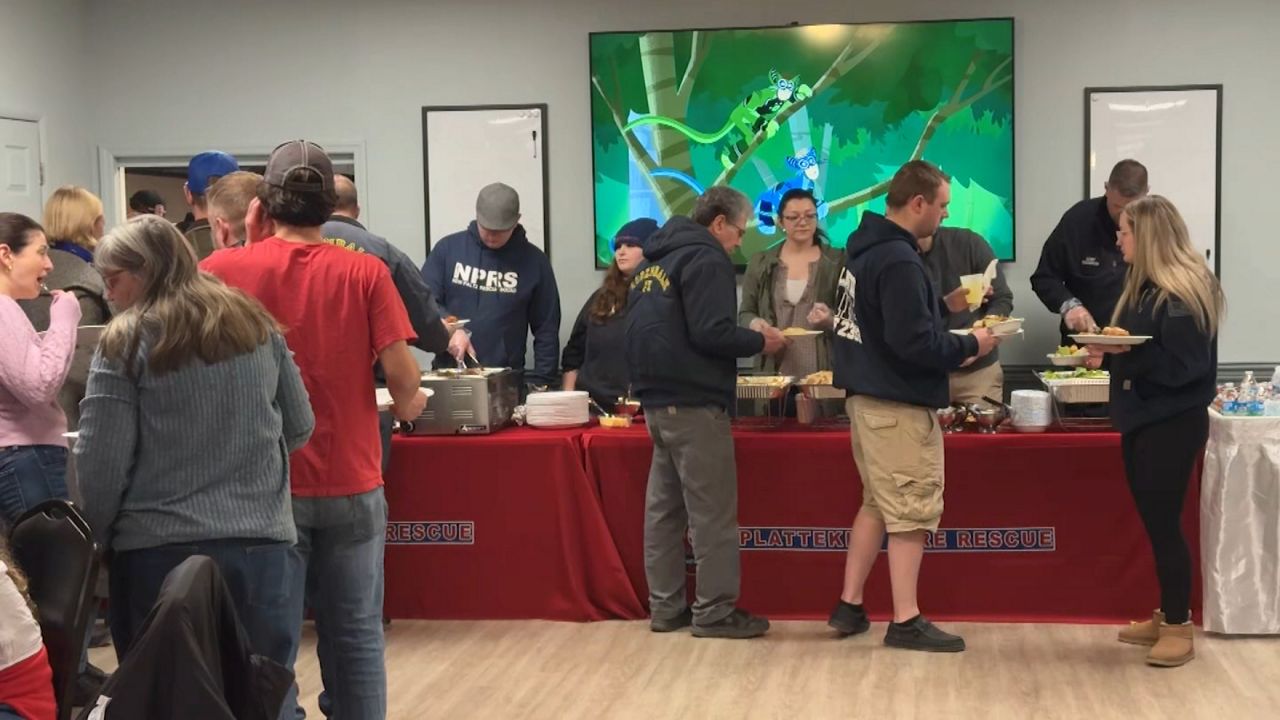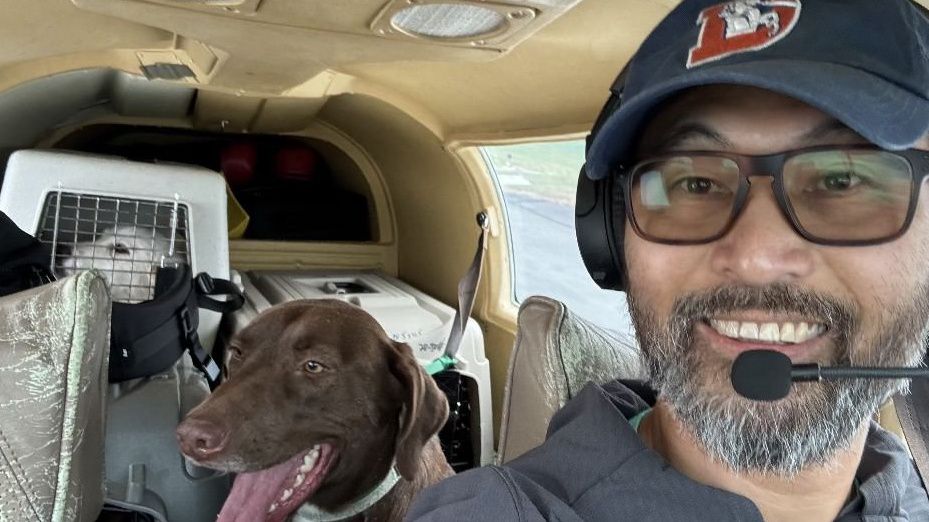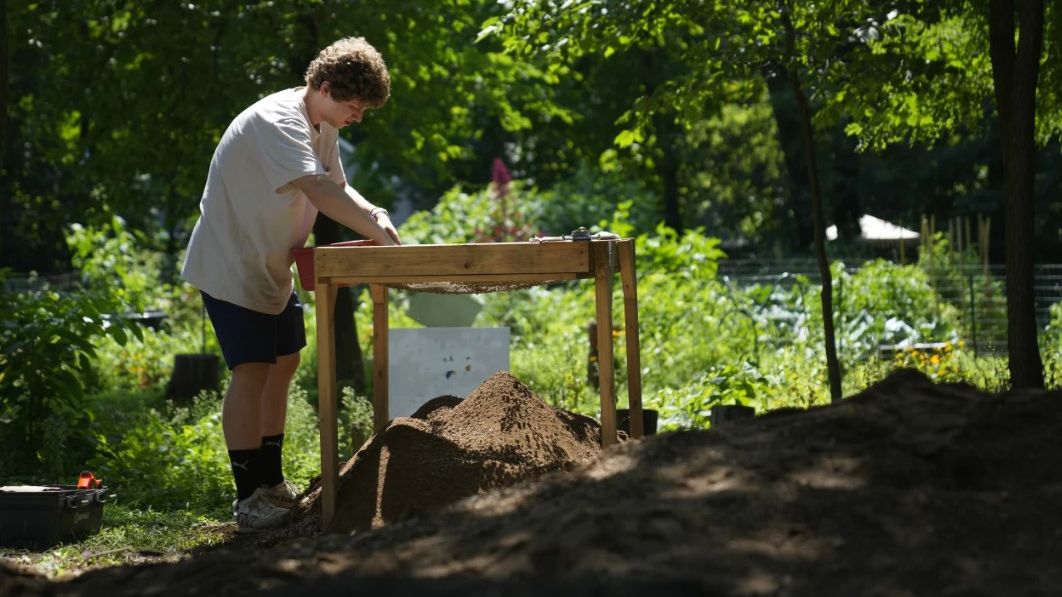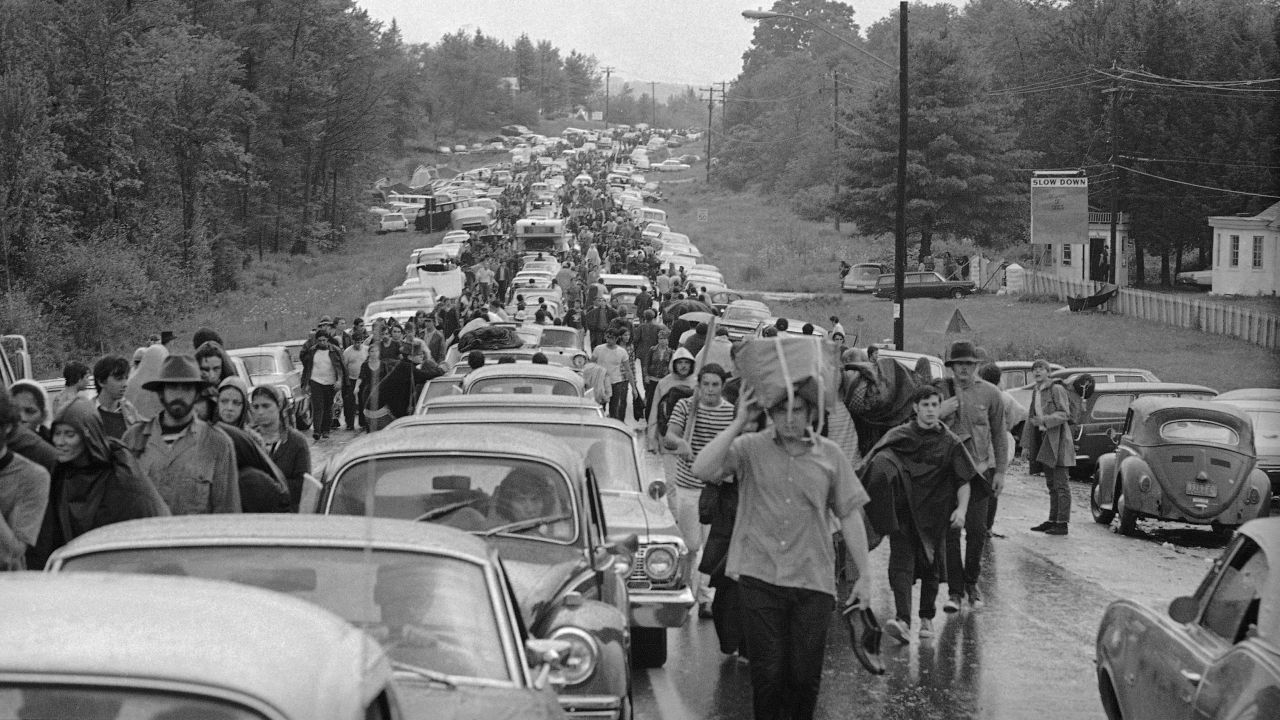As more and more asylum seekers arrive in parts of upstate New York like Albany and Rochester, New York City Mayor Eric Adams says the cost of caring for the growing numbers could reach an estimated $12 billion over the next three years. The impact of the migrant wave is also hitting local non-profit organizations, and volunteers are stepping in to help – but even for aid groups, there’s only so much assistance that can be offered.
Vicki Fox is picking up a special delivery. To-go lunch meals are piled high in boxes prepared by Fareground, a community food organization. The free meal donations are going to migrant men who are staying at a hotel in Poughkeepsie.
Fox, the daughter of immigrants herself, says the arrival of her new neighbors inspired her to volunteer.
“These are people like anybody else, who want good things for their family, they wanna work, they want to have a meaningful life here,” said Fox, a volunteer with Dutchess Welcoming. “And I have to say that I believe that our culture would be so less interesting if we didn’t have immigrants.”
New York City hired DocGo, awarding it $432 million, in a no-bid contract to provide critical services for the migrants, including housing, medical care, food and case management. Fox and other community members want to provide supplemental food assistance to the migrants on top of whatever aid they are already receiving through the city’s program.
“I guess there’s food being provided for the people there at Red Roof, we’re giving fresh produce, really decent hot lunches,” Fox said.
A looming deadline worries Fox. Fareground’s generosity, for now, is until the end of August because these meals are part of Fareground’s free summer meals program for area schoolchildren.
“There’s a lot of dependence on the goodness of others doing volunteer work on the part of government,” she said.
One of the migrants, Javier Alvarado, a 30-year-old from Venezuela, left his family behind in Caracas, including his eight-year-old daughter. The generosity of his new neighbors three months on, Alvarado says, is more than he could have imagined.
“I can’t mention a specific name because so many community members are helping us, they do a great job for us, they give us food,” Alvarado said.
Alvarado added he hopes this support continues, and in return, he’ll continue to show his appreciation with strength, love and respect. Meanwhile, Fox says her small role in getting food to migrants from Latin America, Russia and West Africa is gratifying. She believes the men are looking for a hand-up, not a handout.
Aid groups all over New York say they’re getting stretched to the limits. In the Capital Region, volunteers say their resources are being depleted without getting any sort of reimbursement in return. And in New York City, poverty-fighting organization Robin Hood tells Spectrum News 1 it’s also strained, having to accommodate the needs of their regular clients as well as the newly arrived migrants, and needs more resources.
Adams and others have called for more federal aid. So far New York City has only received around $100 million from the federal government.
The role of volunteers, Fox says, is critical to migrants leading successful lives at a time when New York non-profits may be feeling a strain because of the continued wave of migrants.
Many nonprofits, including Dutchess Welcoming, and politicians like Adams and Governor Kathy Hochul are pushing for the Biden administration to expedite work authorization for the migrants, but there’s been no movement on that end.









